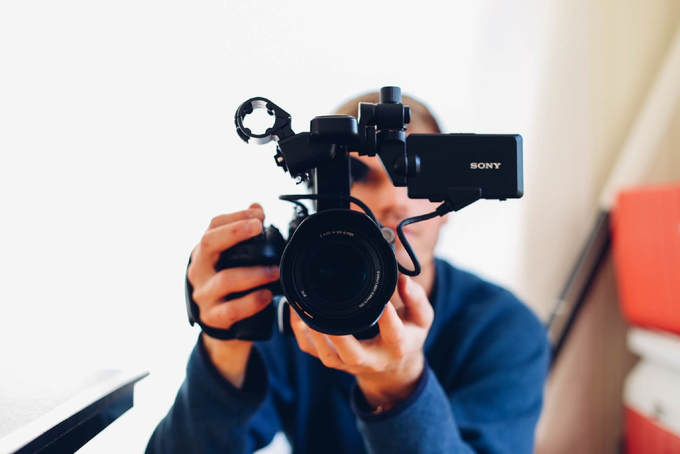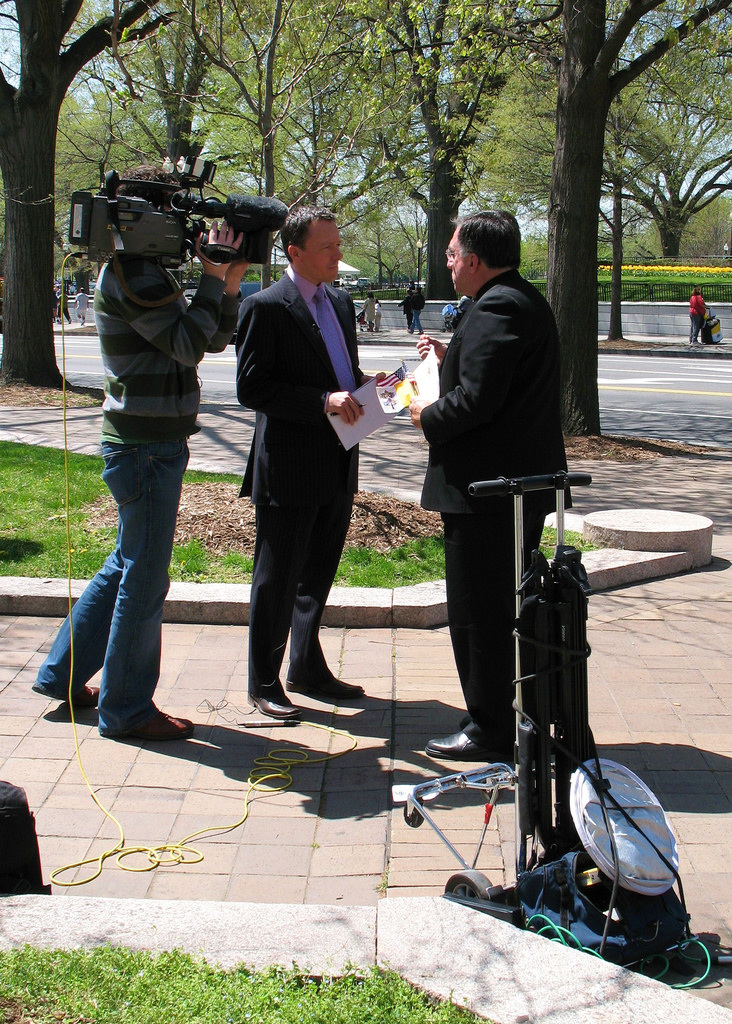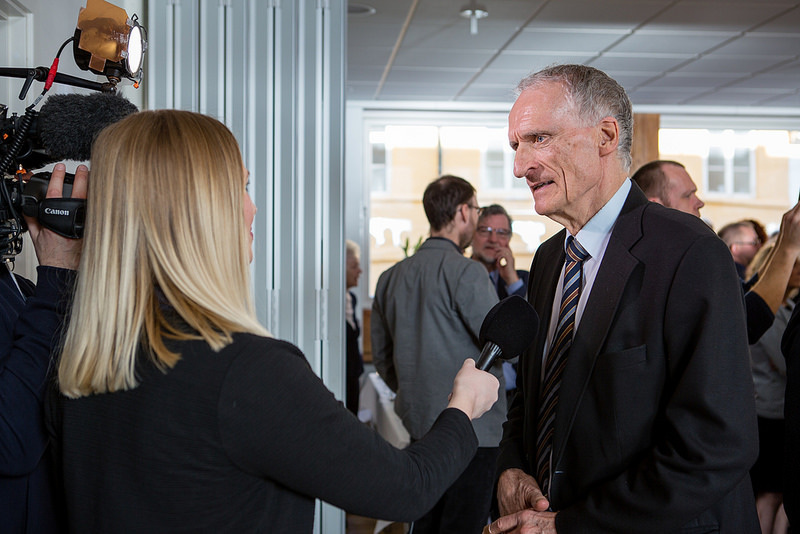|
This is the final of a three-part series on how to conduct a successful interview with the media. Read previous posts about understanding the media and preparing for an interview.
Now that you’ve done your research and prepared your talking points, it’s time for the big event! Follow our top ten pieces of advice below, and you’ll be well on your way to being an interview pro:
0 Comments
This is part two in a three-part series on how to conduct a successful interview with the media. Read the previous post about understanding the media here.
One of the easiest ways you can make sure you have a successful interview is to adequately prepare. Below are our top pieces of advice to help you prepare for an interview. Know what to expect: Conduct some research yourself: Has the reporter written on this topic before? What angle did they take? This might give you a better sense of what to expect during your interview. You can also ask the reporter what types of questions will be asked to get a general sense (they probably won’t give you specific questions). Make sure you’re up on current events in your field so you're less likely to be caught off-guard by a question. This is part one in a three-part series on how to conduct a successful interview with the media.
Being interviewed by the media can be nerve-wracking, no matter how many times you’ve done it. However, interviews don’t have to be painful experiences; with the right amount of understanding and preparation, anyone can make it through an interview like a pro. The best way to ensure you start off on the right foot is to understand the media, so you better know what to expect. Before your interview, consider the following points: Never underestimate the power of brevity. Keeping your message short and sweet increases the odds your audience will stick around to hear everything you have to say. As demonstrated in this article and others, many readers don’t make it past the headline of an online article-- let alone if they have to scroll down the page.
Offline, too, brevity can grant you an air of confidence and competence-- whether in a presentation, press conference, or interview. The trick is knowing when you do need to go into detail: some complex issues or crisis events may require more than 140 characters on Twitter. Find the sweet spot between rambling and a paucity of information, and your message will come across loud and clear. We began one of our recent media training seminars by asking the attendees to imagine that just outside the door were a reporter and camera crew from one of the local TV stations ready to interview them. How would they feel?
Most agreed the butterflies were already fluttering. One person asked if there was an exit in the back of the room. Many of us have such a reaction when it comes to facing the media. A reporter with a note pad, microphone and camera is intimidating. Facing a press conference with multiple cameras and microphones can at first seem like a nightmare. So, how to remain confident in front of the media? Answering questions from reporters can be brutal. The questions can be sharp and direct, putting you on the defensive. You need your own defensive measures to stay in control of the interview.
One of the easiest to spot is the false premise. The question that's being asked is phrased in such a way that it may be impossible to answer and still get your point across. The best move to make is to rephrase the question. "What I think you're really asking..." you might say. Or, "What I think the real issue is...." By rephrasing the question, you answer the question you'd like to answer rather than the one the reporter asked.  Interviews often start with a bang, but end with a whimper. That is, the questions are typically the most hard-hitting at the beginning or soon after an interview starts. Very often, however, the reporter or host runs out of steam - and questions - and coasts to a conclusion. It's not uncommon for them to ask something like, "Well, is there anything else you'd like to add?" This is a golden opportunity. The response should never be, "No, I think we covered everything." Even if you did cover everything, you always want to take the opportunity to restate your key points and remind listeners and viewers of your central message. This is absolutely critical if it's a live interview and you have what amounts to free air time to promote your company, product and brand. So, your response might go something like, "Well, I just want to thank your for the opportunity to talk about our expansion plans. And, I think it's important to again say how excited we are at (Company name) to be able to add jobs and help boost the local economy." And, much more could be said, based on what you're trying to communicate through the interview. The point is to never pass up the wrap-up question at the end. Have your message so well thought out that restating it in various forms becomes second nature to you. We provide media training workshops. Find out more! Follow us on Twitter (@mack_comm).  You may be tempted to pitch your latest widget as a great subject for a media interview. It's a new product that will do wonders, you think. How could it not make news? Stop the presses. Stop thinking about the product and your company. Stop thinking about yourself. Think, instead, about the viewers, listeners or readers you're trying to reach. What do they think? What do they need? What are they most interested in learning? 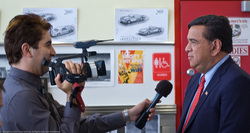 Much of what passes as news these days is a recitation of events and what people say about them. In other words, a local fire causes heavy damage and a neighbor comments about the loss; the City Council passes an ordinance and a store owner comments on what it means to her; an elected official makes a speech and someone from the other party offers an opposing viewpoint. What reporters need While readers and listeners may benefit from comments like these, what's often missing in today's news cycle is good, effective and well reasoned interpretation of the news. Reporters are constantly on the lookout for effective thought leaders who can add a unique perspective on events or trends. The need is even more apparent when it comes to breaking news. 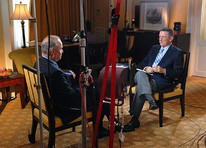 When is an interview officially over? In our media training, we make it clear that even when the camera is turned off and the reporter is packing up his gear, anything is still fair game. Take the recent exchange between Chicago Mayor Rahm Emanuel and NBC 5 political reporter Mary Ann Ahern. |
tags
All
Archives
March 2019
|
Photos from Meet the Media Guru, Joseph.Morris, BoldContent, MDGovpics, Grzegorz Łobiński, Mr Moss, North Charleston, ITU Pictures, wistechcolleges, .v1ctor Casale., www.audio-luci-store.it, katielips, editor64, NeighborLink Fort Wayne, AMagill, timsackton, MyFWCmedia, Matt J Newman, Mr.TinDC, Skley, mikecogh, othompsonski, wayne's eye view, Elvert Barnes, woodleywonderworks, North Charleston, MoBikeFed, flossyflotsam, North Charleston, NYCDOT, US Mission Geneva, jjandames, aalborgstift, BurnAway, A. Germain, North Charleston, NCDOTcommunications, IAEA Imagebank, The Chapman Cultural Center, hitsnooze, Wiertz Sébastien, charliekwalker, cliff1066™, TheeErin, woodleywonderworks, dane brian, Aramil Liadon, 2010 World Wheelchair Basketball Championships, Ty Nigh, freddthompson, Nadia Szopinska, west.m, stormwarning., Bright Meadow, Giorgio Montersino, Chris Erwin, Aplomb, jfingas, joce01_y, Massachusetts Dept. of Environmental Protection, Kevin Walter, Andrew Feinberg, Yan Arief, kellypretzer, Korean Resource Center 민족학교, veDro - l'Italia al futuro, crdotx, US Mission Geneva, Joe Shlabotnik, esocialmediashop, Stephen Cummings, CarbonNYC, sidewalk flying, MoBikeFed, marksdk, Marco Raaphorst, Saleel Velankar, adactio, edkohler, World Economic Forum, USACE Europe District, stereogab, Florin Rosoga, MikeSchinkel

